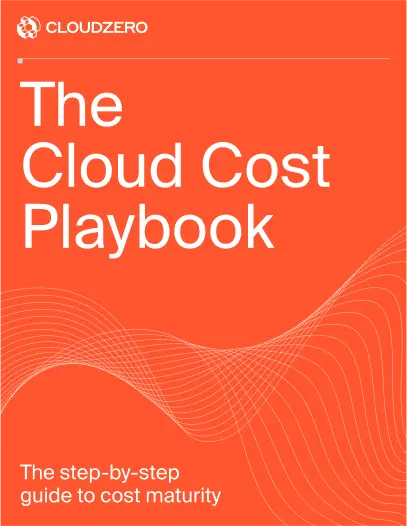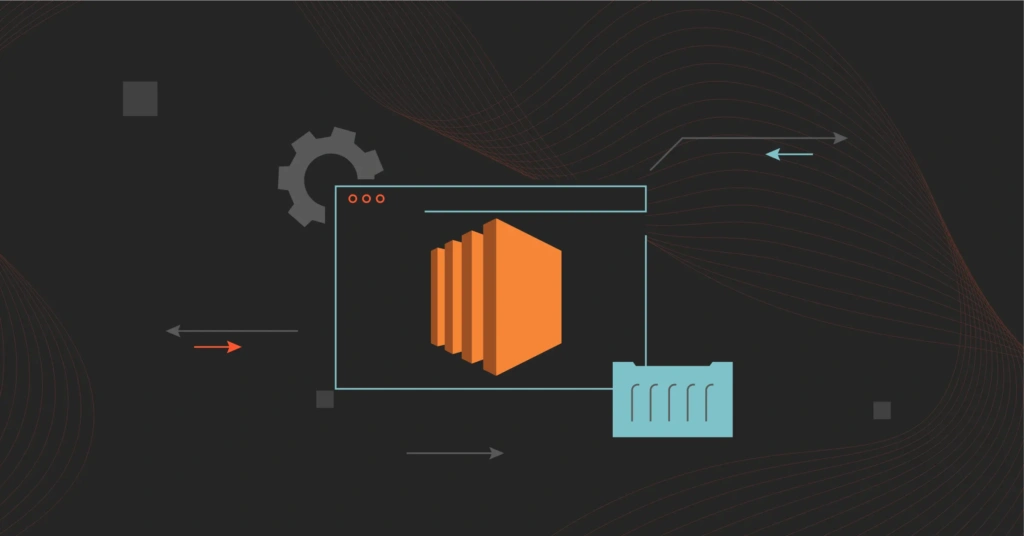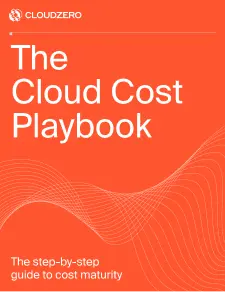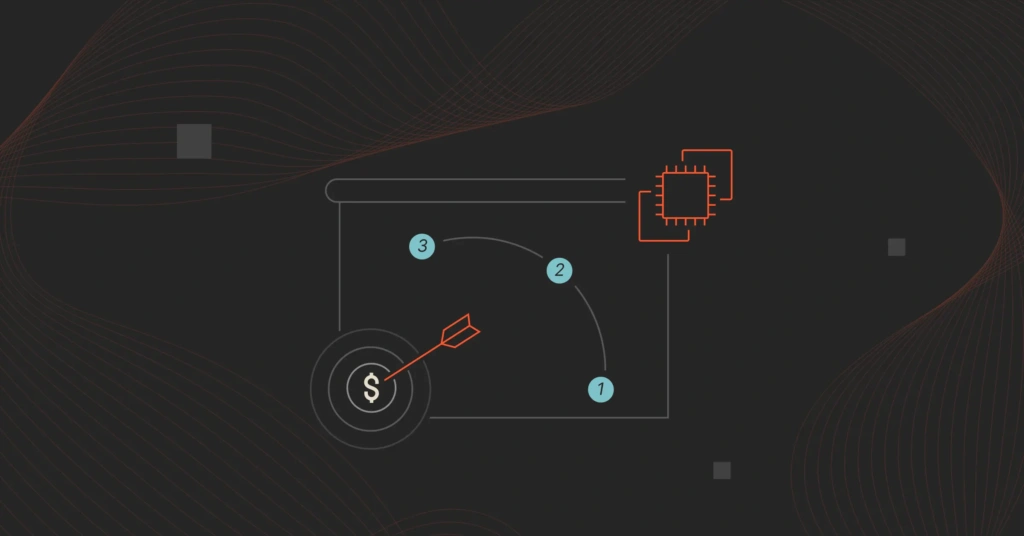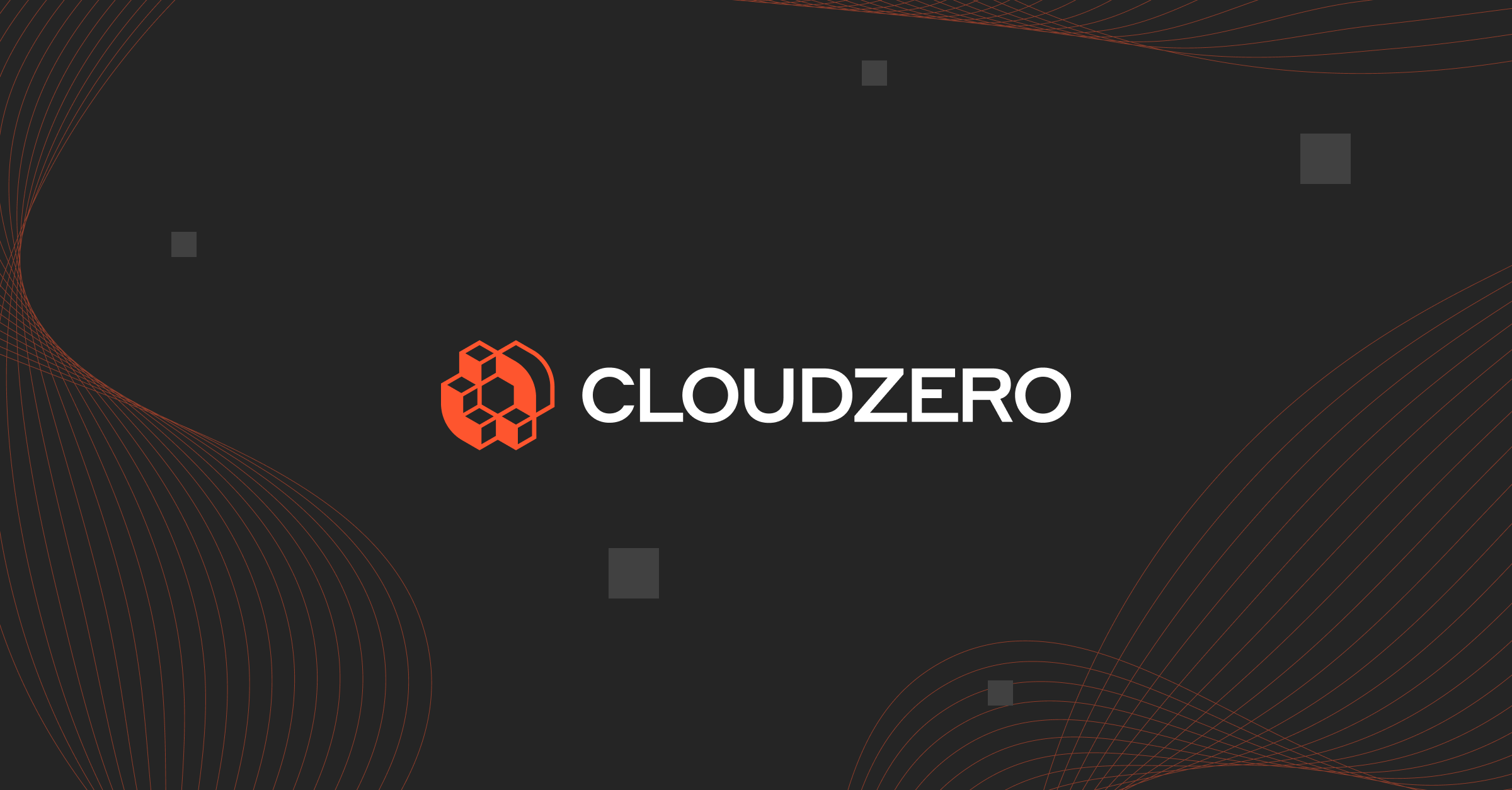Organizations need highly scalable compute capacity in the cloud to handle fluctuating workloads. This ensures they can meet peak demand without over-provisioning resources or incurring unnecessary costs during low activity periods.
Amazon EC2 offers one of the most flexible, on-demand infrastructures that can be scaled to meet business needs. Yet, it isn’t suitable for everyone.
In this guide, we’ll explore why that is and share the best EC2 alternatives to consider.
1But first, a quick recap.
What Is Amazon EC2?
Amazon Elastic Compute Cloud (Amazon EC2) is a web service that provides secure, resizable compute capacity in the cloud. It enables users to launch virtual servers, known as instances, that can be configured with resources to meet various application needs.
These resources, including CPU, memory, and storage, are delivered on-demand through the cloud. This flexibility and control over infrastructure is what we refer to as Infrastructure as a Service (IaaS).
What Is Infrastructure as a Service (IaaS)?
Infrastructure as a Service (IaaS) is a cloud model in which you rent virtual servers, storage, and networking over the Internet. Instead of investing in physical hardware, you can access these resources on demand, scaling them up or down as your needs change.
The main advantage of IaaS is the pay-as-you-go model, which ensures that you only pay for the resources you use, avoiding the costs of idle hardware. With IaaS, you can also:
- Customize your infrastructure
- Deploy resources globally with ease
- Swiftly deploy and manage applications, speeding up time to market
- Integrate with cloud providers for robust security
- Access to the latest technology without large upfront investments
Check out our guide on the different types of cloud computing and how to choose the best model.
Amazon EC2 delivers all these benefits, but there may be better solutions for you.
Why Consider Amazon EC2 Alternatives?
While Amazon EC2 offers a pay-as-you-go model, costs can still be unpredictable. This is mainly due to varying prices based on factors like region-specific costs. Hidden charges such as network fees can also lead to unexpected cost overruns if not carefully managed.
How CloudZero can help: CloudZero partners with Xosphere.io to help businesses save up to 80% on EC2 costs by optimizing Spot instances. The Xosphere Instance Orchestrator simplifies the integration of Spot instances into your AWS environment, even for applications with high availability needs. It automates the management of both stateless and stateful applications, ensuring cost savings. CloudZero also partners with ProsperOps to optimize Reserved Instances and Savings Plans. CloudZero provides comprehensive dashboards through these partnerships for full visibility into your cost optimizations.
Other Amazon EC2 challenges are:
- Despite AWS’s robust reputation for reliability, downtimes due to server maintenance or other issues can still occur.
- Managing and optimizing the EC2 scaling process — especially for applications composed of microservices — can be complex and require constant monitoring.
- EC2 instance performance can vary by region, network, and instance type. This may affect application performance.
What To Look For When Searching For An Amazon EC2 Alternative
Consider the following key factors to ensure the best fit for your needs:
- Cost. Evaluate the pricing models offered by alternatives, such as pay-as-you-go, reserved capacity, or spot pricing. Consider hidden costs, such as data transfer fees or extra charges for certain features.
- Scalability. Ensure the alternative can scale to meet your workload demands. Look for options that offer both vertical and horizontal scaling.
- Performance. Assess the alternative’s performance benchmarks, including compute power, memory, storage options, and network speed. It should match or exceed the performance levels you need for your applications.
- Global availability and reliability. Consider whether the alternative has a global presence with data centers in regions critical to your business. Assess the provider’s track record for reliability, uptime, and disaster recovery capabilities.
- Integration. Check if the alternative integrates with your existing tools, platforms, and workflows. Consider how easily it can be incorporated into your current DevOps processes.
- Security and compliance. Ensure the provider offers robust security features, including encryption, identity management, and regular updates. It should also comply with industry standards relevant to your business, such as GDPR, HIPAA, or ISO certifications.
- Customization. Look for an alternative that offers customizable instance configurations and services that can be tailored to your business needs.
If cost is your concern, here is a detailed breakdown of EC2 pricing along with strategies to optimize costs. However, if cost isn’t the only factor, consider the following alternatives.
11 EC2 Alternatives To Consider Switching To
These services offer scalable infrastructure for various workloads.
1. Google Compute Engine
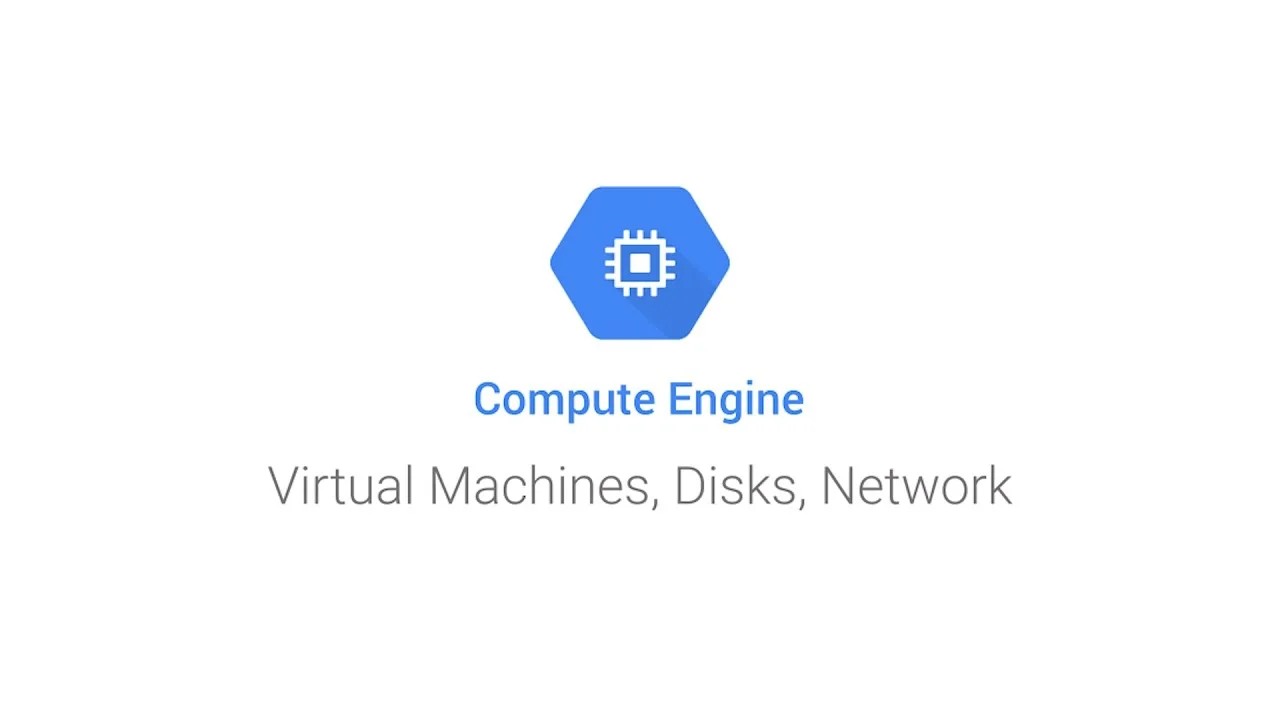
Google Compute Engine (GCE) is ideal for containerized deployments. It provides the virtual machines that Google Kubernetes Engine (GKE) uses to run and manage containerized applications.
GCE also excels in environments where automation and Infrastructure-as-Code (IaC) are essential. It integrates with tools such as Terraform to automate infrastructure management.
Additionally, if your operations depend on other Google Cloud Platform (GCP) services, such as Cloud Storage and BigQuery, GCE offers smooth integration.
2. Azure Virtual Machines

If your organization uses Windows or Linux applications, Azure Virtual Machines fit the bill. They simplify the deployment, management, and scaling of virtual instances. They also integrate with other Azure services, making them ideal for development, testing, and hosting tasks.
Whether you’re updating existing systems or building new ones, Azure VMs offer the customization and control you need.
3. Oracle Cloud Infrastructure
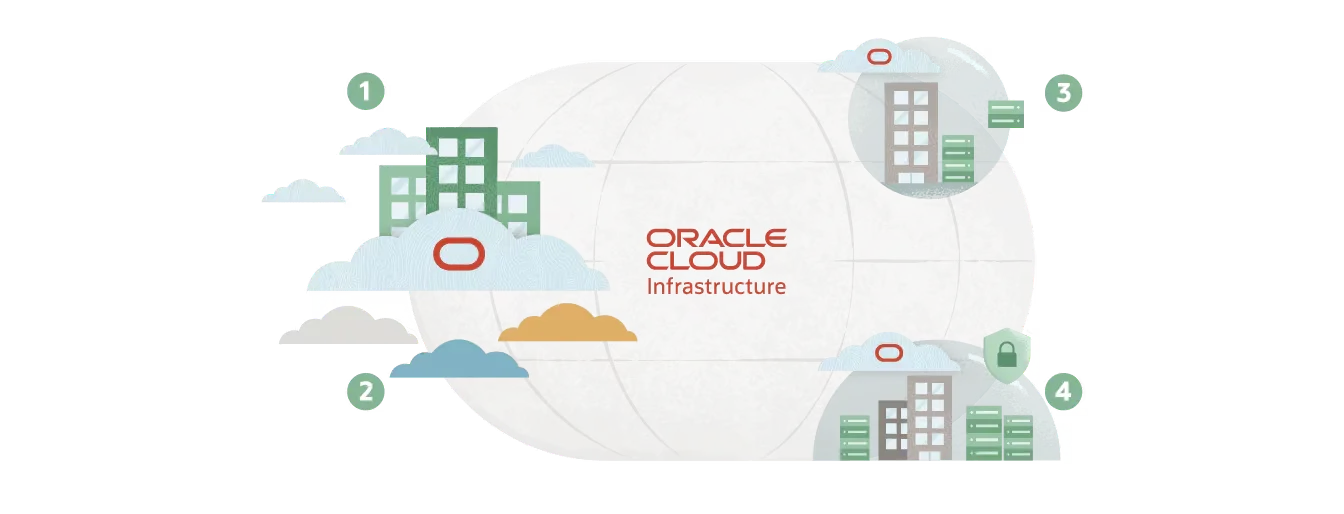
Oracle Cloud Infrastructure (OCI) differentiates itself from AWS and Azure with its architecture. It is built to address the challenges of network collisions and vertical scaling.
OCI reduces network collisions with a highly optimized network architecture. This includes advanced load balancing and traffic management techniques. The design ensures that workloads don’t interfere with each other, providing consistent and predictable performance across different applications.
In vertical scaling, OCI offers flexible compute shapes for precise resource allocation. This flexibility allows organizations to scale their infrastructure without over-provisioning. In contrast, other cloud environments might need complex reconfigurations or encounter performance bottlenecks when scaling vertically.
4. DigitalOcean

DigitalOcean offers scalable Linux-based virtual machines known as Droplets. Each Droplet functions as an independent server that can be used on its own or as part of a larger cloud infrastructure.
With Droplets, users can adjust computing power, memory, and storage to meet their application needs. DigitalOcean offers a range of plans, allowing you to select the configuration that best fits your requirements.
Droplets also operate in isolated environments. This ensures each server has dedicated resources without interference from others. They also support private networking for secure communication between Droplets.
5. Akamai Connected Cloud

Akamai was the first company to introduce the Content Delivery Network (CDN) concept in the late 1990s. They developed a distributed server network to deliver web content faster and improve users’ internet access reliability.
It’s no surprise that in 2023, Akamai introduced Akamai Connected Cloud, a platform that combines edge and cloud computing. It leverages Akamai’s vast network to bring computing closer to users. The platform is built to be distributed, open, accessible to use, focused, and developer-centric.
Akamai Connected Cloud improves efficiency by operating near end-users, which reduces energy consumption and emissions. It processes data closer to its source, optimizing resource use and workload management. The platform also increases reliability and resilience, reducing downtime and supporting sustainable performance.
6. IBM Cloud Virtual Servers
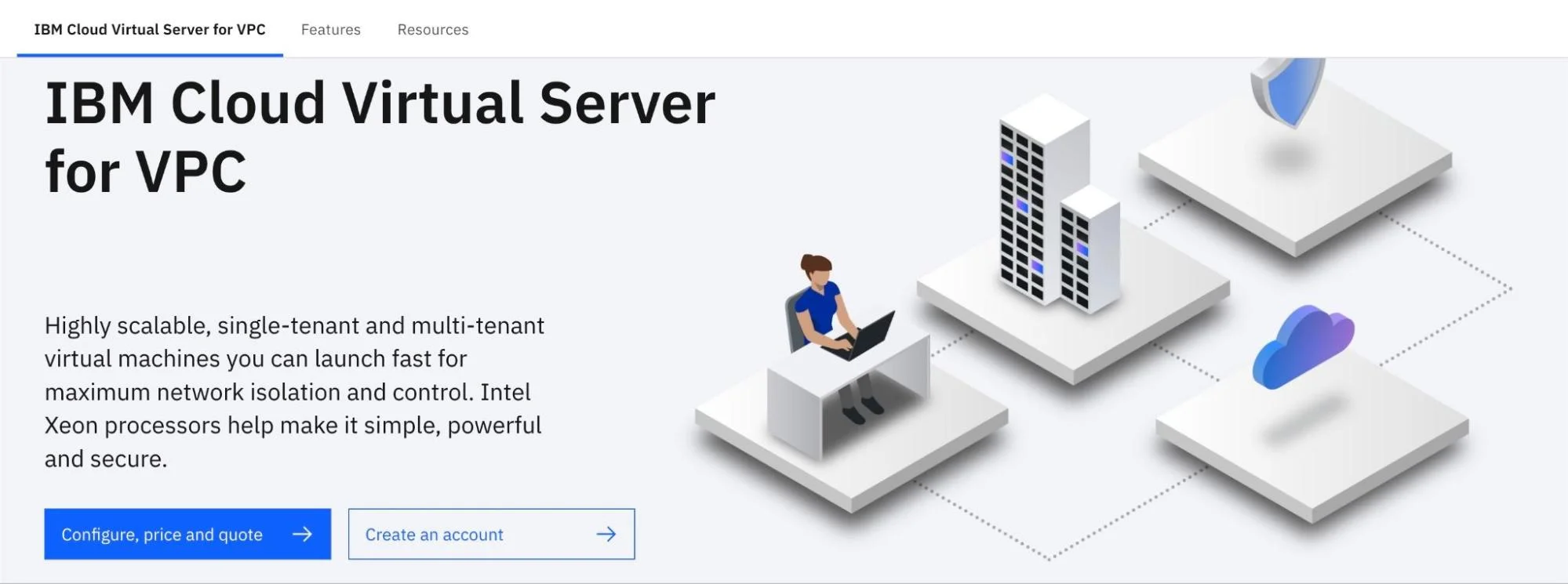
For organizations already using IBM Cloud, IBM Cloud Virtual Servers are the best choice. These servers are optimized for enterprise-level applications. They support self-contained microservices, allowing businesses to scale their applications as needed. In three-tier web applications, they manage high traffic and ensure efficient caching.
IBM Cloud Virtual Servers also handle SAP workloads, providing the infrastructure to run these critical business applications. They are well-suited for HPC tasks like AI and machine learning, where powerful NVIDIA GPUs improve processing speeds.
For those needing next-level security, IBM supports confidential computing. This safeguards sensitive data and AI workloads with advanced hardware-based security like Intel SGX technology.
7. Azure Virtual Machine Scale Sets
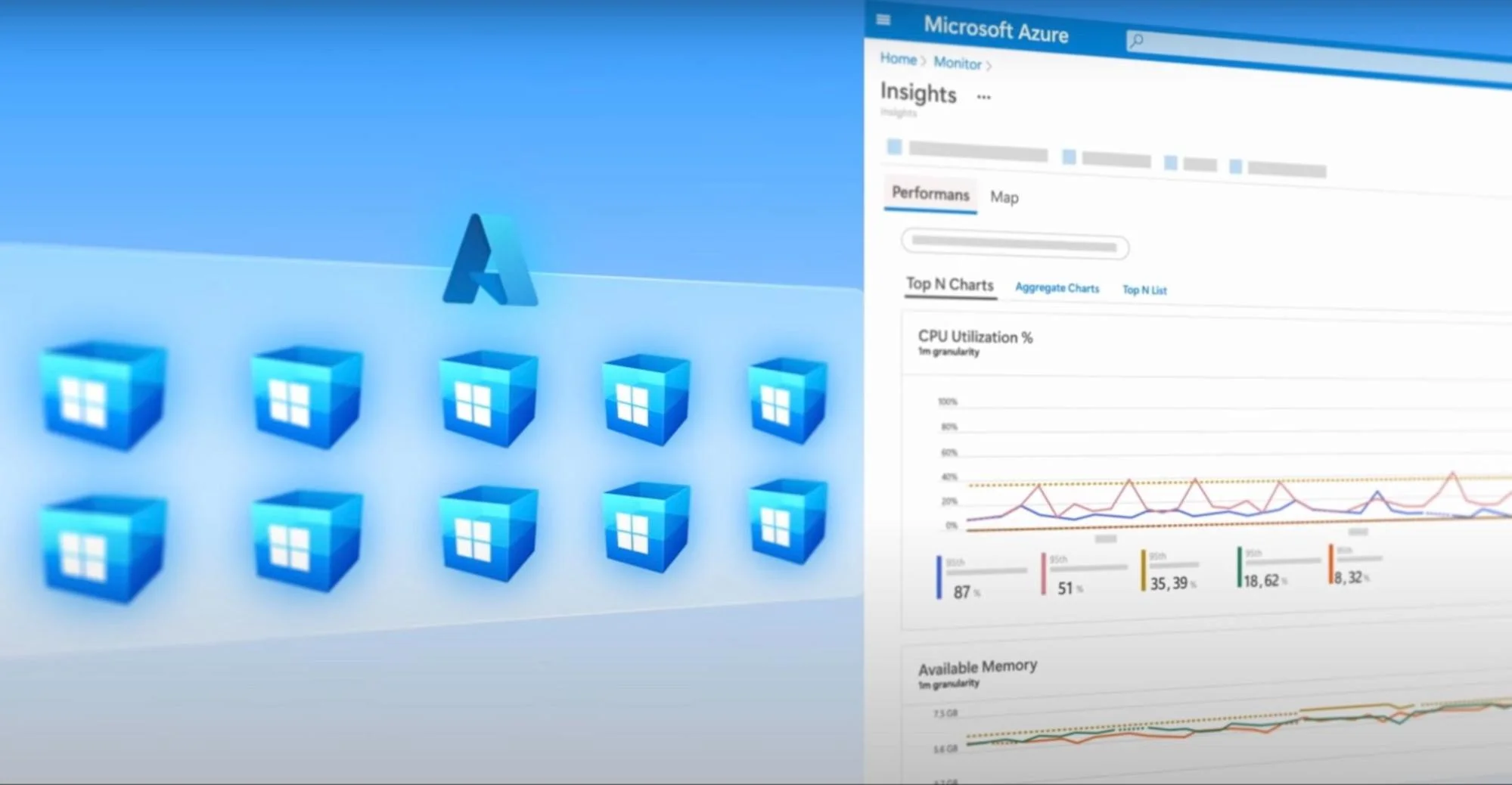
Azure Virtual Machine Scale Sets (VMSS) are one of the primary auto-scaling services in Azure. They automatically manage and scale a group of identical virtual machines based on demand. This ensures your applications can handle traffic fluctuations without requiring manual adjustments.
They function similarly to Amazon EC2 Auto Scaling in AWS, dynamically adjusting resources to maintain performance and optimize costs.
8. Vultr Cloud Compute
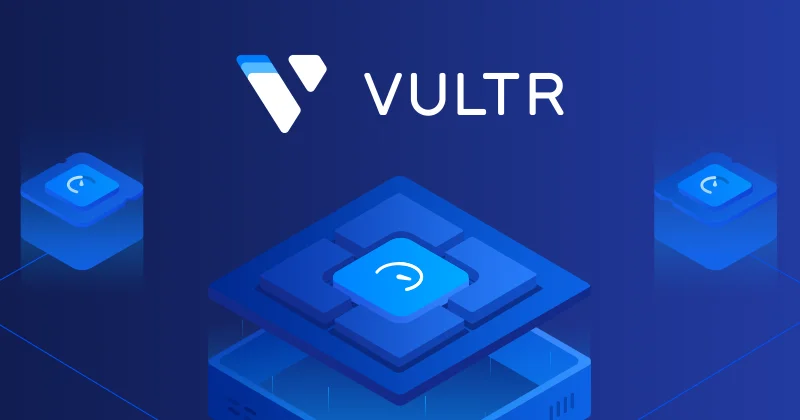
Vultr Cloud Compute is a compute service offered by Vultr. It is powered by the latest-generation AMD and Intel CPUs and enables users to deploy and scale VMs and bare metal servers on demand across 32 global data center locations.
It is designed for scalability and flexibility, allowing businesses to adjust resources without downtime and build custom workflows without the risk of vendor lock-in.
Vultr Cloud Compute is a cost-effective alternative to more complex and costly cloud platforms.
9. Cherry Servers
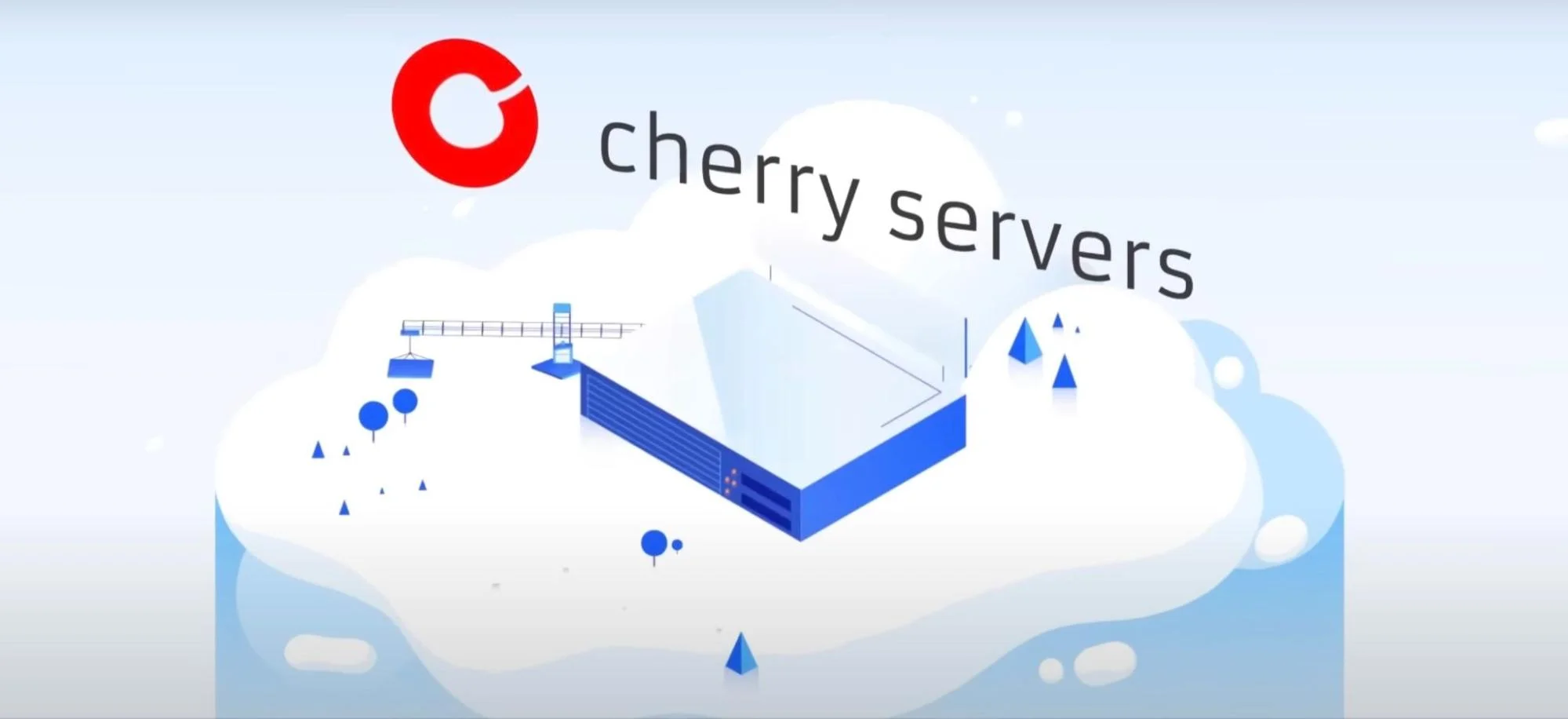
Cherry Servers is an open platform that specializes in high-performance dedicated servers. For shared resources like CPU, memory, and storage, the Cloud VPS is a cost-effective option. It is ideal for small to medium workloads, such as web hosting and development environments.
For more demanding needs, Cherry Servers offers Dedicated Bare Metal Servers. These private servers come with full cloud automation and control over hardware. Using high-performance Intel and AMD processors, they can be customized with additional RAM, storage, and GPU accelerators. Users can select pre-built servers or design custom configurations to meet their requirements. These servers are particularly beneficial for applications in gaming, big data analytics, and financial services.
10. Rackspace Technology
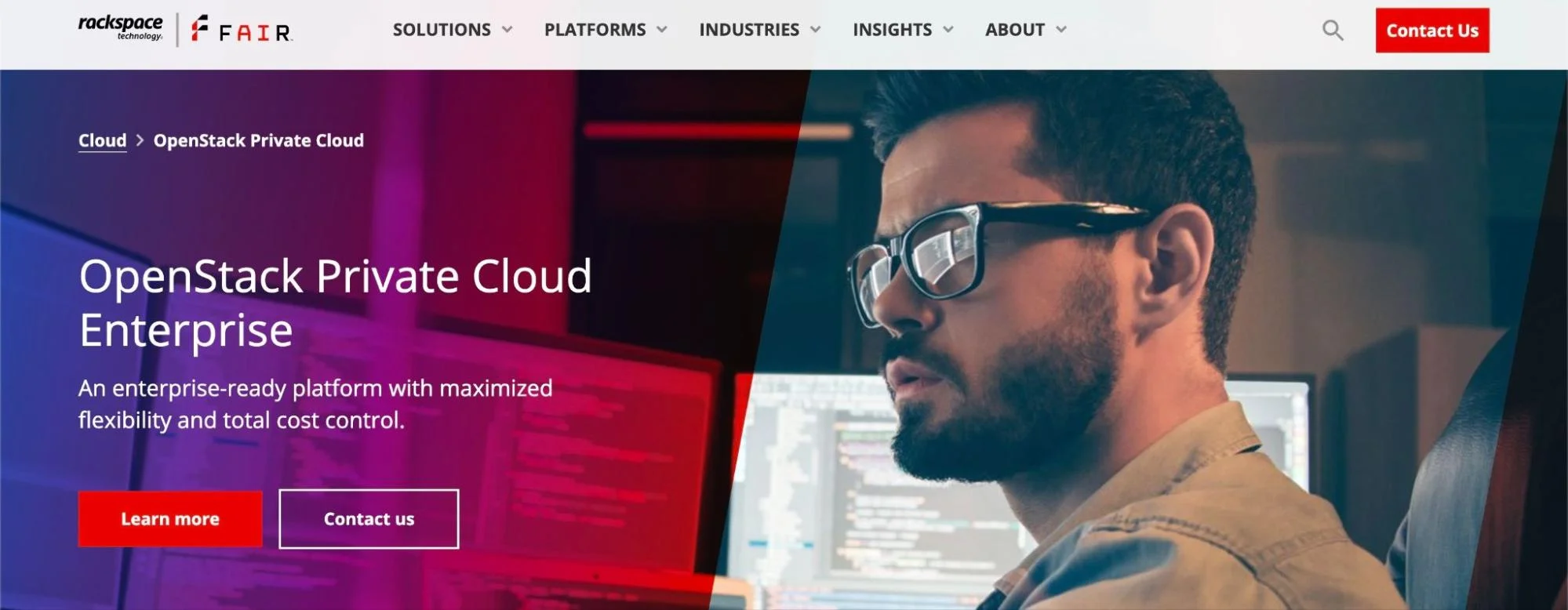
Rackspace Technology delivers Rackspace Cloud Servers, a cloud hosting service. It is built on OpenStack, an open-source platform for public and private clouds. The service ensures reliable hosting without tying your data to a single proprietary system. It allows you to move workloads freely between cloud vendors or your own data center.
The servers are ideal for scalable eCommerce sites, SaaS applications, and global, media-rich websites. They also integrate with tools like Kubernetes and support agile test and development environments.
11. OVHcloud

OVHcloud features Public Cloud Instances that enable scalable virtual machines for various purposes. Its Bare Metal Servers allow for high-performance tasks.
For security, OVHcloud’s Private Cloud ensures isolated environments with dedicated resources. High-Performance Computing (HPC) supports tasks that demand significant computational power, such as scientific research and financial modeling.
However, OVHcloud has fewer data centers globally, which can result in higher latency in certain regions. The platform also includes fewer advanced features and integrations, which may limit options for more complex cloud setups.
Understand, And Control Your Cloud Computing Costs With CloudZero
You can choose from the above EC2 alternatives based on your needs. Yet, whatever you select, you will incur compute costs that need cloud cost management.
CloudZero’s cloud cost intelligence platform helps you collect, analyze, and understand costs across AWS, Azure, GCP, and Oracle Cloud. It also integrates with Kubernetes, as well as popular SaaS platforms such as Snowflake, Datadog, Databricks, New Relic, and more.
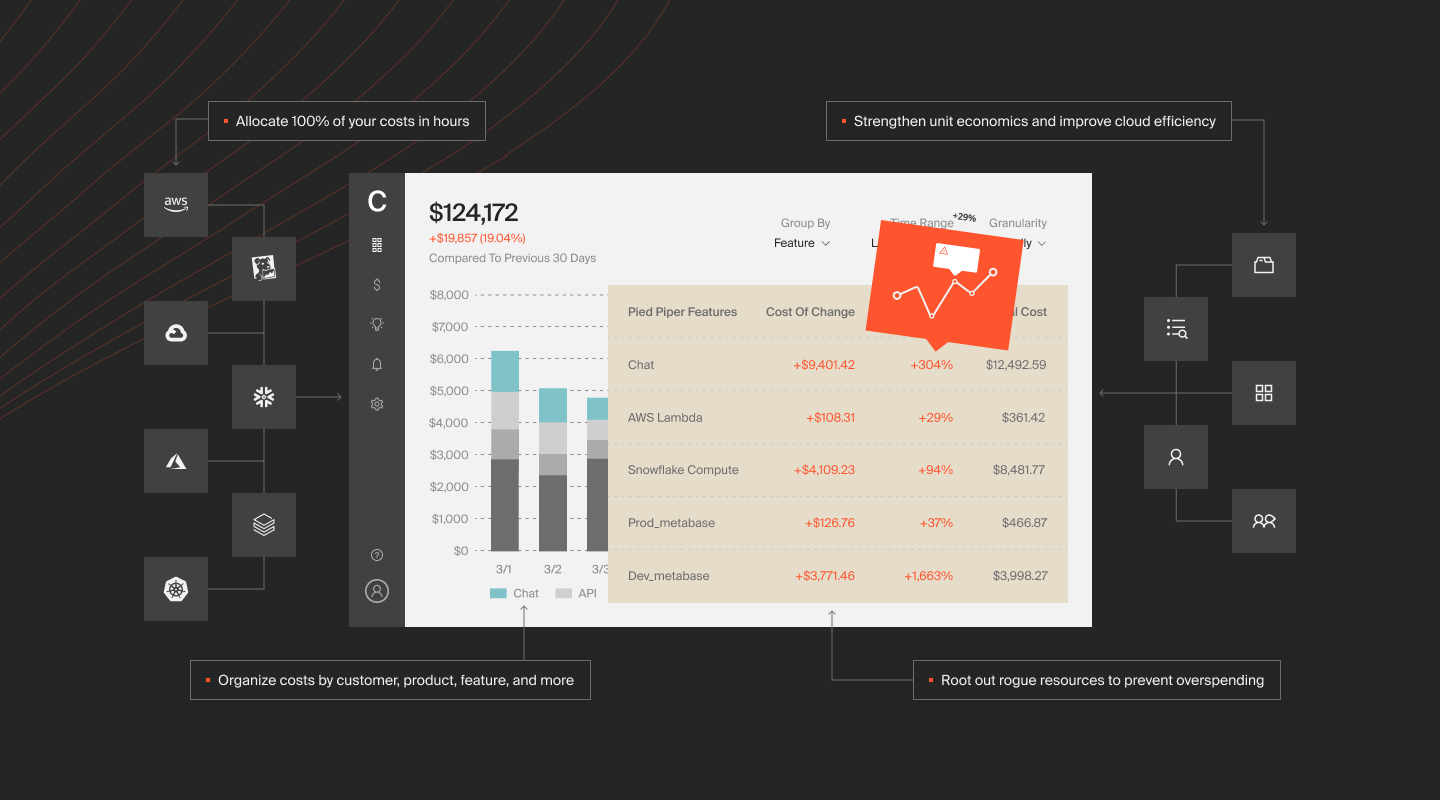
With CloudZero, you can view your costs by product, feature, customer, and more, right down to the hour and pod level. By bringing all your cloud spend into one platform, CloudZero ensures you never miss anything related to your cloud costs.
